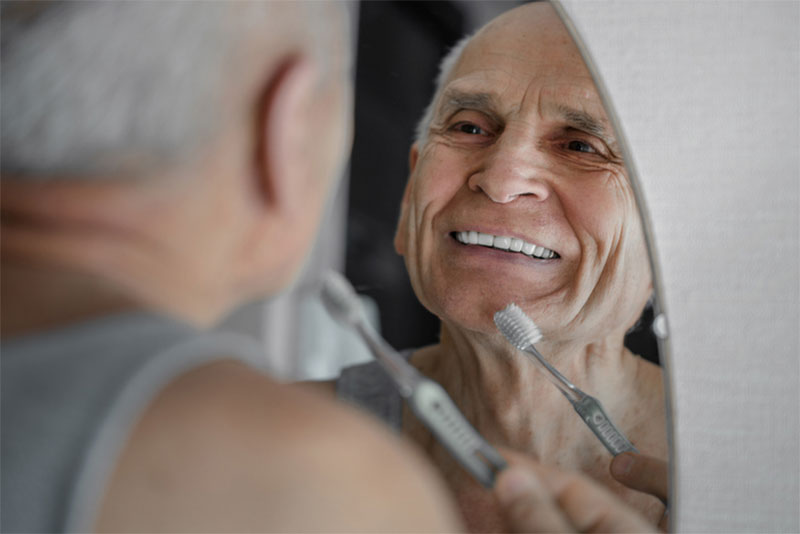
Adapting activities can help a senior with dementia preserve their independence.
If you’re caring for someone with dementia, you might be inclined to do as much as possible for the person to ease the stress of even the most basic daily tasks. Independent living and dementia may even seem like polar opposites. However, most of us have a natural need to safeguard self-reliance and the freedom to remain in charge of our lives. This is true in spite of dementia. As a result, it is very important to help a senior with dementia stay independent, to whatever extent possible.
How Can I Help a Senior With Dementia Maintain Independence?
It takes some extra time and energy to modify daily life to promote self-sufficiency, but it will be well worth it. And of course, the stage of dementia is going to be a prominent consideration in how much adaptability is needed. Here are several tips to get you started on rethinking how daily activities can be carried out successfully for somebody with dementia.
Planning and Set-Up
Think through the steps associated with a particular activity, and which might be challenging for the person. For instance, reaching up to get a dish out of a high cabinet, twisting the tie off a bread bag, and making a sandwich may be challenging. In cases like this, before the individual comes into the kitchen, take care of those steps by laying out everything needed to make a sandwich. They may then be able to independently complete the task. Similarly, you can lay out clothing, get clothes out of the dryer to be folded, or whatever advance steps will empower them to handle the activity on their own.
Stand Back But Model and Prompt When Necessary
Give the person some space to try the task, but remain nearby to provide assistance as needed. This will allow as much independence as possible without causing the person frustration if the task becomes too challenging. Using the example of brushing their teeth, say the individual picks up the toothbrush but seems uncertain of what to do next. There are various ways for you to offer help. One particularly unobtrusive way is by nonverbal modeling. You can pick up your own toothbrush, and while you are both facing the mirror, start to brush your own teeth. This may be all that’s necessary for the individual to copy your actions. If this doesn’t work, try a question prompt, for example, “I see you’re holding your toothbrush; what’s next?”
Use Step-by-Step Instructions
If modeling and prompting are not helping, try breaking the task down into smaller steps and offering verbal tips for every step as required. In the example above, it might look similar to this: “Let’s place the toothbrush on our teeth. Now we will move the brush forward and backward, like this. Now we’ll take a sip of water and rinse.” After each step, pause and see if the person can continue themselves, and if so, end your verbal guidance and step back once again to allow them to finish the task independently.
Supervise
No matter what the person’s skill level, make sure to stay close enough to ensure safety. This does not mean hovering over the person while they are brushing their teeth. But it does mean being close enough to make sure they’re turning on cold water instead of hot to avoid a burn. There’s a fine line to walk between safety and independence.
At Home With You Senior Care, a provider of dementia care services in Towson, Owings Mill, Lutherville, and the nearby areas, it is always our primary goal to enable older adults to maintain as much control over their everyday lives and choices as possible, while ensuring their safety and wellbeing. Contact us at 410-756-0959 if you would like to talk to us about any challenges you’re facing in caring for a person with dementia. We are always here to help.
